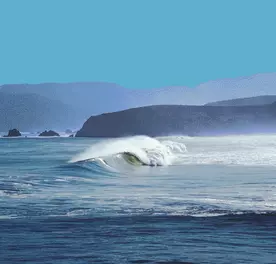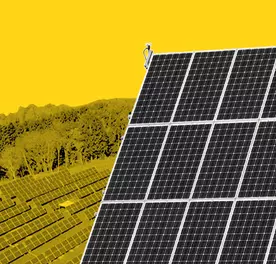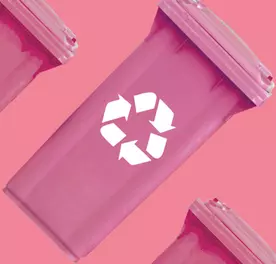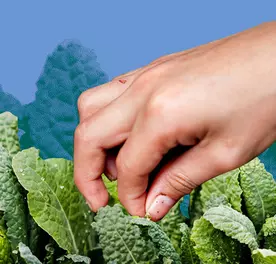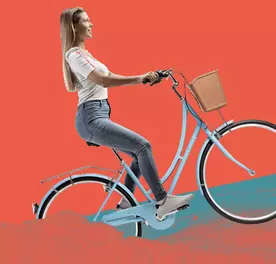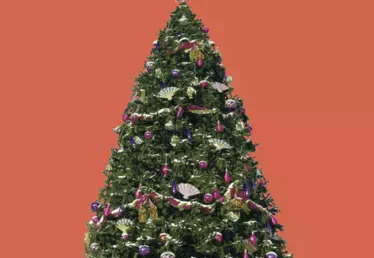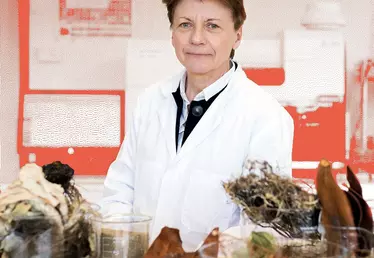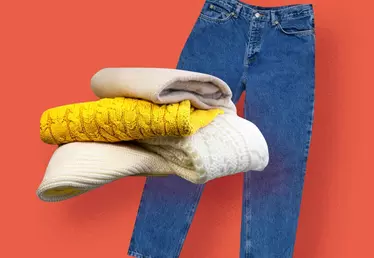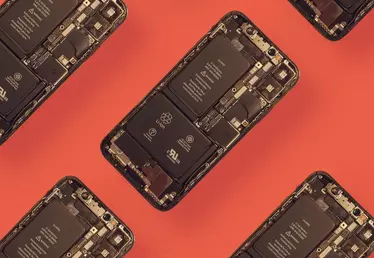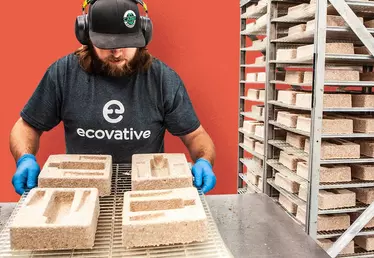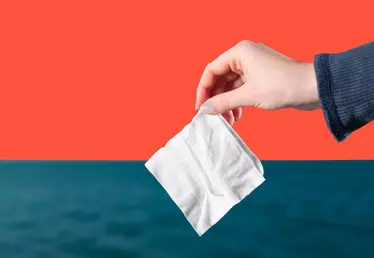

Hero banner custom title
There is now a 100% biodegradable alternative to plastic
3 min
Ecovative has developed a material with the same properties as plastic, but made from the mycelium – the white filaments – of mushrooms. An innovation that could replace polystyrene in packaging.
The story of Ecovative Design began in 2006 when Gavin McIntyre and Eben Bayer, two students at Rensselaer Polytechnic Institute (State of New York, USA), had the idea of creating a new material from agricultural waste and mycelium. The mycelium is the vegetative part of the mushroom, consisting of branched filaments called hyphae – which help decompose the dead organic matter on which they feed. McIntyre and Bayer wanted to use this organism to grow a material with the same properties as plastic.
After graduating, they decided to focus on developing their idea and founded their company in 2007. Ecovative launched itself in the packaging industry by presenting its product as an environmentally friendly alternative to polystyrene - the compact white foam used to pack the breakable items, such as electronic devices or furniture. Dell was one of the first manufacturers to use this type of packaging for its computers.
Mycelium, an amazing material!
The manufacturing process of the "mushroom-based plastic", called Myco Foam, is as follows : Ecovative collects agricultural waste such as straw, corn husks or lentil pods from local producers. The waste is sterilized and introduced into the mycelium and the mixture is placed in molds in the dark. For five days, the mycelium grows. Feeding on the agricultural waste, it forms a network of tiny white fibers entangled in and around the substrate, filling all the available space and forming a solid structure. The resulting material is removed from the mold and dried to stop the mycelium growing and producing mushrooms or spores.
"Mycelium is an amazing material, because it's a self-assembling material. It actually takes things we would consider waste[…] and can transform them into a chitinous polymer, which you can form into almost any shape"
At equivalent cost, the advantages of the products "grown" by Ecovative compared to synthetic hydrocarbon-derived materials are significant. Where, for example, the production of a cubic meter of polystyrene consumes the equivalent of 1.5 liters of oil, Myco Foam requires very little energy. Tons of polystyrene clog landfills and pollute the oceans taking hundreds of years to degrade, but Myco Foam returns to earth in the form of a nutrient once it has completed its life cycle.
100 % natural, it is
100 % biodegradable and breaks down in just a few weeks!
The success of Ecovative
Today Ecovative offers four product lines:
- Myco Foam, which can replace polystyrene in packaging or in thermal and acoustic insulation panels
- Myco Board, chipboard substituting for MDF the design of furniture and doors
- The Grow It Yourself program, launched in 2014 to foster open innovation, offering kits to individuals to grow their own items with mycelium
- Ecovative Interiors, a collection of objects for the home and office.
A sign of success, Ecovative just opened a second plant manufacturing packaging and organic panels in the State of New York. Ikea, the Swedish furniture kit giant, announced its intention to use this invention to replace polystyrene in its packaging.
